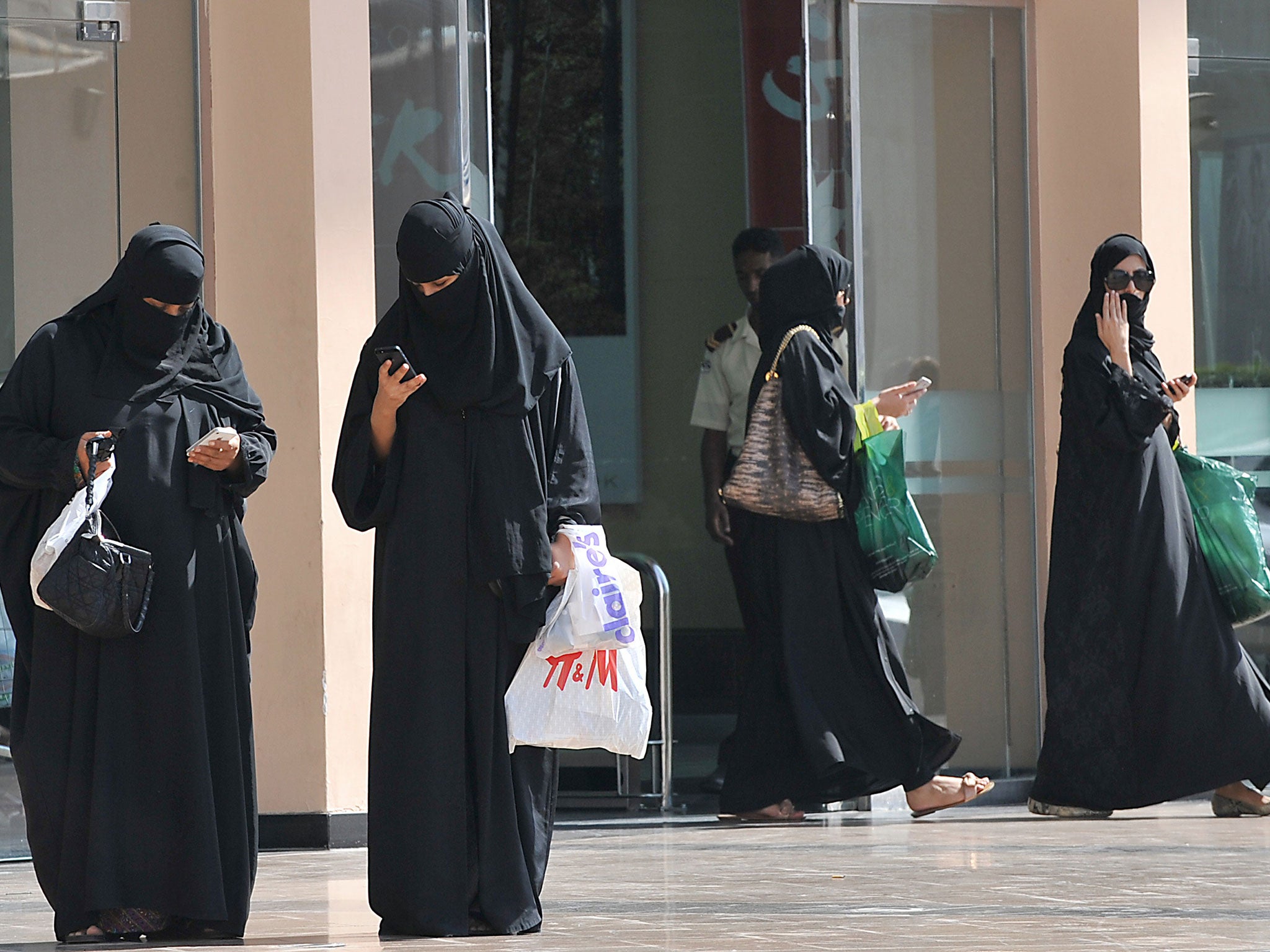Saudi Arabia strips religious police of powers of arrest and says they must be 'kind and gentle'
The previously far reaching powers of the Commission for the Promotion of Virtue and Prevention of Vice face limitations

Your support helps us to tell the story
From reproductive rights to climate change to Big Tech, The Independent is on the ground when the story is developing. Whether it's investigating the financials of Elon Musk's pro-Trump PAC or producing our latest documentary, 'The A Word', which shines a light on the American women fighting for reproductive rights, we know how important it is to parse out the facts from the messaging.
At such a critical moment in US history, we need reporters on the ground. Your donation allows us to keep sending journalists to speak to both sides of the story.
The Independent is trusted by Americans across the entire political spectrum. And unlike many other quality news outlets, we choose not to lock Americans out of our reporting and analysis with paywalls. We believe quality journalism should be available to everyone, paid for by those who can afford it.
Your support makes all the difference.Saudi Arabia's infamous religious police have had their powers curtailed and their members instructed to be "gentle and kind" in their dealings with the public.
Known as the Commission for the Promotion of Virtue and Prevention of Vice, the force has been criticised in the past for a heavy handed approach to enforcing the strict Sharia law which operates in the country.
The new guidelines codify the reach of the Commission, which has operated in the past without procedural rules.
The Commission is a semi-autonomous, 5,000-strong force which, until now, conducted patrols in parks, streets and shopping centres, worked to combat drug use, stopped unrelated men and women from mingling in public and ensured stores closed for daily prayers.
It is also one of several government agencies monitoring online activity in the kingdom.
However, the Mutawas, as the Commission's officials are known, are no longer allowed to chase people down the street or demand to see a person's ID or other documents. The new rules also say the Mutawas are not to entrap or arrest people, specifying this is exclusively the jurisdiction of the police and drug enforcement officials.
They must also now wear visible identification badges detailing their name, work location and duration of work hours.
The directives also ruled men who work for the force "must be of good character and behaviour, known for their good reputation" and must not have been sentenced to longer than one year in prison or have been convicted of crimes of dishonesty.
The Mutawas were advised to be "gentle and kind" in their dealings with the public. The group, which already reports directly to the king, will no longer be overseen by the Interior Ministry but exclusively by the monarch.
The change has been welcomed by many Saudis.
"It's great. Finally!" blogger Eman al-Nafjan told AFP news agency, adding that she hoped any officers disobeying the rulings would be held accountable.
"I'm very confident because there are so many people that are for these changes,” she said.
Often, Mutawas have stopped men and women driving in cars or walking in public places, demanding to see proof they are married or directly related.
In addition, though the Mutawas were also told in the past not to chase people, members were accused by the public of violating these orders when two brothers were killed in a high-speed chase for playing loud music on Saudi Arabia's National Day in 2013.
In 2002, the religious police were accused of preventing the rescue of girls trapped in a school fire because they were not wearing abayas and head coverings as they attempted to flee the all-female building. Fourteen girls died in the fire, though the director of the force at the time denied his staff had prevented rescuers from entering the school.
Additional reporting by Associated Press
Join our commenting forum
Join thought-provoking conversations, follow other Independent readers and see their replies
Comments